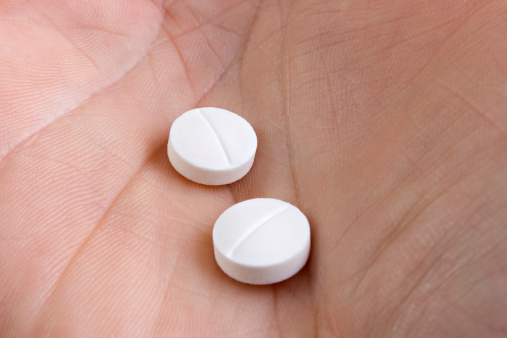Since its creation more than a century ago, aspirin has gained a reputation for being a “wonder drug”—and a new study is serving as further evidence of its vast uses.
According to researchers at Francis Crick Institute in London, aspirin, when given in combination with immunotherapy, may boost the effectiveness of immunotherapy treatments, offering a better option in place of traditional cancer therapies.
 Immunotherapy is commonly criticized for its inability to fend off prostaglandin E2 (PGE2) molecules, which are produced by cancer cells. PGE2 weakens the immune system, making it difficult for immunotherapy treatments to effectively fight tumor cells.
Immunotherapy is commonly criticized for its inability to fend off prostaglandin E2 (PGE2) molecules, which are produced by cancer cells. PGE2 weakens the immune system, making it difficult for immunotherapy treatments to effectively fight tumor cells.
However, researchers tested aspirin’s ability to inhibit PGE2 production, thereby allowing the immunotherapy treatment to effectively attack the cancerous tumor cells (aspirin belongs to a group of drugs called COX inhibitors, which halt PGE2 production and boost the immune system). The researchers found that when combined with the immunotherapy treatment anti-PD-1, aspirin helped to substantially suppress PGE2 production and slow down the growth of bowel and melanoma cancer cells in mice.
Dr. Peter Johnson, chief clinician of Cancer Research UK, expanded on the study’s findings: “PGE2 acts on many different cells in our body, and this study suggests that one of these actions is to tell our immune system to ignore cancer cells. Once you stop the cancer cells from producing it, the immune system switches back to ‘kill mode’ and attacks the tumour.”
While the researchers note that further studies need to be conducted to determine if the drug will have the same effect on cancer cells in humans, their findings do open up a new avenue of research to better boost the effectiveness of immunotherapy treatments.
The study was published in the journal Cell and funded by Cancer Research UK.
Sources for Today’s Article:
Zelenay, S., et al., “Cyclooxygenase-Dependent Tumor Growth through Evasion of Immunity,” Cell September 2015, doi: 10.1016/j.cell.2015.08.015.
“Aspirin could hold key to supercharged cancer immunotherapy,” ScienceDaily web site, September 3, 2015; http://www.sciencedaily.com/releases/2015/09/150903131416.htm.
Hirschler, B., “Scientists turn to aspirin to turbo-charge cancer immunotherapy,” Reuters web site, September 3, 2015; http://www.reuters.com/article/2015/09/03/us-health-cancer-aspirin-idUSKCN0R31TQ20150903.
